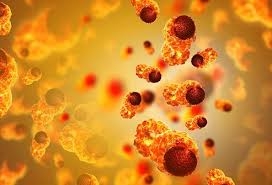Goodluck1
Doctor : Research Writer, Psychologist And Motivational Speaker
Wants to meet Just Friends
Articles
8
Followers
3
profile/961use.jpg
Goodluck1

3 Changes You Can Make Today To Lower Your Cancer Risk
~4.1 mins read
In June 2020, the American Cancer Society released new guidelines for how, in addition to not smoking, changes in your diet and physical activity can significantly lower your risk for cancer. The guidelines note that at least 18 percent of all cancer cases in the U.S. are related to a combination of these controllable lifestyle factors:
While making a few lifestyle changes seems simple enough, it’s not. It takes consistent work to make changes, and that’s hard. However, if you break up these changes into smaller goals, it makes lowering your cancer risk, and living a healthier life, easier to achieve.
Maintaining a healthy weight is tied directly to eating healthy, nutritious foods and staying active. This is important because being overweight or obese is linked to an increased risk for a number of different cancers including breast, colon and rectal, gynecologic, gastrointestinal, and others.
The connection between weight and cancer risk is actively studied and complex, but researchers think it’s tied to hormones like estrogen and insulin, as well as the immune system, inflammation, and even how you carry fat on your body.
What’s most important is taking steps to eat healthier foods, stay active, and reduce your alcohol intake. Here are some simple things you can do today to start reducing your cancer risk.
Eat healthy, nutritious foods
Some key factors driving weight gain in the U.S. are sugar-sweetened drinks and the abundant availability of, and desire for, fast or processed foods that are high in fat and sugar. To combat this, we advise our patients to start small and make healthier choices every day:
Get or stay physically active
Along with eating healthy foods, physical activity helps you lower the risks that come with being overweight or obese. The overall goal is to sit less and move more. If you haven’t exercised at all, you should check with your doctor before jumping into a more vigorous exercise program.
The easiest of all activities is walking—just lace up your sneakers and take the first step. Setting small, achievable goals helps—maybe you can set a goal to walk to the end of the block and back, and then add another block on your next walk.
The American Cancer Society recommends that adults get 150 to 300 minutes of moderate-intensity exercise per week, choosing an activity that works for you. This includes:
You also can engage in 75 to 150 minutes of vigorous-intensity activities, including:
Abstain from drinking alcohol or drink less
There’s a link between alcohol consumption and cancer, as it increases your risk for cancers of the mouth, throat, breast, esophagus, liver, colon and rectum. In addition, it adds empty calories to your diet that can lead to weight gain.
The American Cancer Society recommends NOT drinking alcohol. However, if you do drink alcohol, it’s best to do it in moderation. That means no more than one drink a day for women and two drinks a day for men.
A “drink” is defined as:
Your cancer risk is linked to the amount of alcohol you drink, not the type. Therefore, it’s not advised to drink larger amounts of alcohol on fewer days.
And, one more thing
Coupled with these recommendations, cancer screenings increase the chance of detecting certain cancers early, when they might be easier to treat. Learn what screening tests the American Cancer Society recommends, when you should have them, and what’s covered under some types of insurance.
Your doctor is your best resource for helping you make the lifestyle changes necessary to reduce your cancer risk. With comprehensive precautions in place, it's safe to get the care and screenings you need.
As Submitted by Virtua
PLEASE LIKE OUR PAGES TO INCREASE OUR SERVICES AND IF YOU HAVE ANY QUESTIONS, YOU CAN DROP THEM IN THE COMMENT BOX.
As Submitted by Virtua
PLEASE LIKE OUR PAGES TO INCREASE OUR SERVICES AND IF YOU HAVE ANY QUESTIONS, YOU CAN DROP THEM IN THE COMMENT BOX.
profile/961use.jpg
Goodluck1

9 Reasons To Schedule Your Colonoscopy Today
~2.0 mins read
If you’ve been afraid or embarrassed to have a colonoscopy, here are nine reasons why you should reconsider scheduling this life-saving screening.
Don’t put off this life-saving screening. Consult your Doctor to schedule your colonoscopy today.
Advertisement

Link socials
Matches
Loading...
